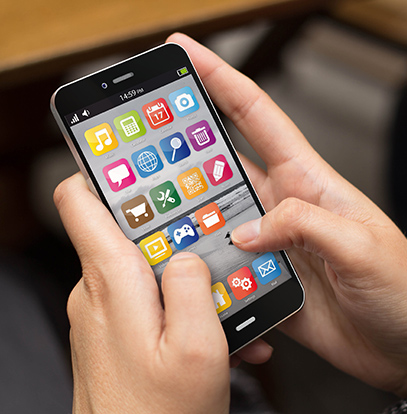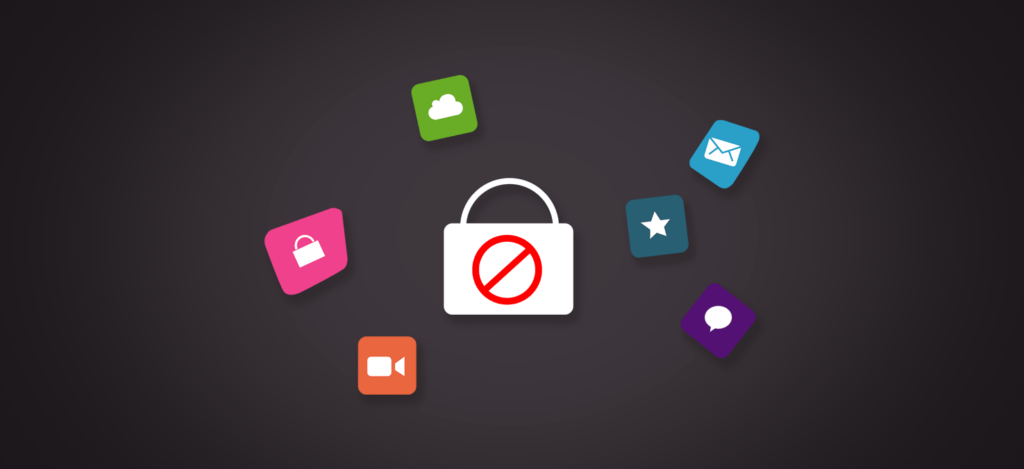There are a lot of chances for an app to get rejected from the store. Below given are the guidelines that can help your iOS or Android apps from getting rejected.
Apple App Store Rejection Reasons

- An app should not contain any bugs. The apps should be tested thoroughly to detect all possible bugs and needed to be fixed before uploading to the App Store.
- The app that crashes at some point of its operation is rejected.
- An app should not provide outdated contact information. Such apps are rejected, and such contents are illegal in some countries.
- Links are to be provided to the app’s privacy policy if there are subscriptions in Kids Category.
- Apple needs a quality app. Apple says that the apps which display a web page that is not optimized for iOS or which displays a web page that is shown by another app are not quality apps, and can be removed.
- Submitting more than an app at the same time and which are similar are rejected.
- The app is rejected if the description of screen shots provided in the App Store does not cover the app functionality.
- False information are not to be provided about an app. All features mentioned in the description should be present in the app. Apple needs an app to “perform as advertised”, which means that the app should not give the users an impression of what it is not.
- Apps should have a clean interface. A clean interface is that where the elements such as text boxes and buttons need to be aligned neatly and the users should be able to browse through easily. More details are given below:
- Apps should not have a complex user interface.
- Users need to see most contents when zoomed out and without scrolling horizontally.
- Touch controls should be smooth.
- The buttons need to be at least 44 points x 44 points, so they can be tapped easily.
- Text size should be at least 11 points so that they can be seen clearly even if zoomed out.
- The contents need to be clearly visible and text is to be distinguishable from background.
- The text should not overlap or appear to be crowded. There should be enough space between each line.
- Every image provided in the app needs to be high-resolution images.
- Images should be clear. Distorted images are not allowed. The aspect ratio of the original image is to be maintained.
- Related information is to be understood clearly. Text, images, and buttons are arranged in such a manner that they are related.
- Text boxes and buttons are to be arranged clearly so that users do not have doubts regarding related text boxes and buttons.
- No image in the app should be placeholder images. A placeholder image is that (temporary) image that is substituted in place of an image that is originally intended to be in the place. Such images usually show messages like “coming soon” or “image not present”, or may even show a solid color with an ‘X’ mark.
- Texts such as ‘Lorem ipsum’ or ‘dolor sit amet’ should not be present at any part of the app.
- For reviewing an app, the following are needed to be provided:
- Complete and up-to-date contact information.
- Demo account, with a username and password, if the app has a login or similar feature.
- Specific configurations, if the app needs it for running.
- Any hardware for demonstration, if any features of the app require an additional hardware for its smooth work.
- An app which does not have much contents, contents applicable to a small niche market (niche market focuses on a specific product) or that do not have much functionality is removed.
- Apps having name or icon similar to other apps on the App Store are rejected.
- If an app uses location services in the background, then it is to be mentioned for what purpose it is done.
- Apps are rejected if advertisements are not displayed in an app that is indicated the presence of an Advertising Identifier (IDFA). Also, if advertisements are not properly displayed in such an app, then the app will be rejected. If it is given that the app does not have IDFA even if it does, then the app will gain a status “Invalid binary” after successful addition to the store.
Advertising Identifier (IDFA) was introduced in iOS 6. Some advertising SDKs make use of IDFA while some do not. So, checking this option purely relies on which advertising SDK is used.
Android App Store Rejection Reasons

-
- Apps with explicit or child abusive contents are rejected.
- Apps that have graphic representations of any kind of violence, that promote self-harm, and that have contents against a group of people, religion, etc. are also removed.
- Gambling apps, that allow gambling with real money are not permitted. However, advertisements about online gambling can be provided in apps, only if the following conditions are satisfied:
- The advertisement should not target underage users, which means that such apps are not allowed to be displayed in apps that target underage users.
- The information about gambling should be clearly given on the landing page of the advertisement.
- The advertisement needs s local license to display contents based on gambling.
- Apps that promote illegal sales, purchase, and consumption of drugs are removed.
- Apps should not provide descriptions and screenshots which are not related to the app. For example, the app claims to be a calculator app in description and screenshots, but it is a game.
- Apps that spam users are removed.
- Do not abuse the device or network. Such apps will be blocked. An app should neither block another app displaying ads nor interfere with them. Game cheating apps that affect other users are also not allowed.
- Apps with malicious behavior are not allowed on Play Store.
- If an app contains in-app purchase functionality, the details are to be provided in Play store. In-app purchases include:
- Purchase of coins, tokens, lives etc.
- Purchasing an ad-free version of an app, and pro version (an app that have additional features than the free version) of the app.
- Subscription to various services, including news, music etc.
- Cloud storage.
If a user unsubscribes from a service then the user should receive contents to which he/she subscribed to, till the subscription period ends, even if the user is unsubscribed. It is not required to provide a refund for unsubscribing from the service.
- Different types of advertisement types that violate Play store policies include
- Deceptive ads: These are ads that pop up when a button in the app UI is tapped or which appear like system notifications.
- Disruptive apps: These are apps that cover most of the screen, and there are no direct ways to close the ad (such as a close button).
- Ads interfering with device functionality: Such apps pop up when a button indented to close the app is pressed. Such apps appear just before exiting the app or pop up after having exited to the home screen.
- Inappropriate ads: Ads which target audiences who are not intended to view them.
- App description in Play Store does not contain repetitive keywords, references to other apps, or excess details.
- Do not force the users to promote the apps. This includes providing offers if:
- Users promote the app.
- A 5-star rating is given in store.
- These policies should also cover contents in links provided within the app.
Designed for Families Program
Apps designed for families should contain ESRB rating “Everyone (E)” or “Everyone 10+ (E10+)” or equivalent. Such apps comply legally regarding advertising to children. Such apps should not contain inappropriate ads, nor should the developers advertise other apps developed by them. Google sign in or Play Game services are not to be included in apps that specifically target children. These features can be included in apps that target mixed users. The link to the application’s privacy policy should be included within the app.
Rejection, Removal and Suspension
An app update can be rejected if it violates Store policies. Even if the update is rejected due to policy violation, the previous version will still be available to download from the store. A developer account’s good standing with Google Play will not be affected. It is not recommended to submit the app again unless all policy issues are fixed.
A new app submitted for review by Google can be rejected before adding them to the Play store. A developer account’s good standing with Google Play will not be affected. It is not recommended to submit the app again unless all policy issues are fixed.
An app is suspended if there are multiple policy violations. Also, apps can be suspended if there are repeated rejections/removals. Developer account’s good standing with Google Play will be affected. Such an app can be re-submitted only if the developer credentials are still in good condition with Google Play.
App appeal can be filed if you think your app does not violate any policies but was rejected by Google.





